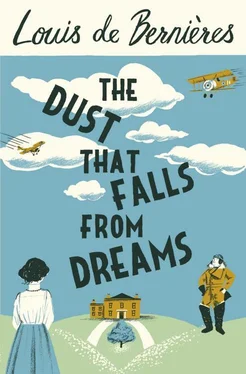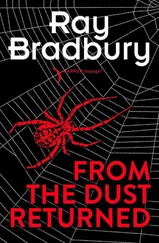‘No, it ain’t. I can drink tea at the station any time. I come ’ere to see you.’
Millicent sat down at the kitchen table, and said, ‘I s’pose you know about Hutch.’
‘Course I know about Hutch. I was here when he came in and dropped, wasn’t I?’
‘I just got this feeling, see?’
‘What feeling?’
‘I loved him, Dusty, I really did love him. I thought we was going to get hitched. You know, happily ever after and all that.’
‘Yeah, well, I know all that.’
‘Look, Dusty, I like you a lot, but I got something holding me back.’
‘Hutch?’
She nodded.
‘Where’s he buried, then?’
‘Walthamstow.’
‘Let’s go and visit him.’
‘Visit him? What are you on about?’
‘Let’s go and look at his grave. You got Sunday off, haven’t you?’
‘Afternoon. We have to go to church in the morning. Gives me a chance to snooze a bit at the back.’
‘Well, I’ll be down at the Tarn with a combination. You make sure you’re all togged up, ’cause it does get bloody cold and it ain’t even spring yet. Two o’clock all right?’
‘Half past one,’ said Milllicent. ‘I didn’t know you had a motorbike.’
‘I don’t. I’ll borrow one off my mate Smiffy. He’s a scrap merchant. I know him because every time something metal gets nicked, the idiot what stole it tries to sell it to him, so I just go straight down to Smiffy’s.’
‘What’s in it for Smiffy?’
‘Every time a car gets smashed up and I’m on the scene I recommend the owner go to Smiffy for the best price.’
‘Is that pukka?’
‘What the eye don’t see the heart don’t grieve,’ said Dusty. ‘I’ll see you on Sunday. Down at the Tarn. Half past one.’
So it was that after an eventful journey, which included stopping to look at the Tower of London and a near miss involving a bolting dray horse, they found themselves standing side by side over Hutch’s grave. It was well grassed over and the headstone had already lost the spruce look of newness. Millicent bent down and placed a posy of flowers, then she stood up and said, ‘Hello, Hutch darling.’
Dusty put down the single rose that he had brought, and said nothing at all, letting Millicent weep at his side. He resisted the temptation to put an arm around her or to try and console her.
‘The thing is,’ said Millicent at last, ‘it isn’t him down there, is it? I mean, it’s what’s left of what he used be.’
‘Well, I don’t think he’s down there,’ said Dusty. ‘It’s like when you see someone die. What’s left isn’t them at all, is it? You can tell there ain’t nobody in there. Anyway, why don’t you ask him?’
‘Ask him what?’
‘Ask him if Dusty’s all right. Go on, ask him. Say “Is Dusty all right?”’
Millicent looked down at the grass, with its sad collection of overblown snowdrops that were waiting to rot back into their roots, and said, ‘Hutch darling, is Dusty all right?’
They stood side by side, until Millicent’s hand crossed the little space between them, and slid into his.
‘I reckon he thinks you’re all right,’ said Millicent.
As they were leaving, Dusty said, ‘Will you wait just a mo? I want to say something to Hutch. On me own, like.’
Millicent waited by the lychgate, and a freezing wind suddenly whipped up her hair and made her eyes water all over again.
Dusty squatted down by the grave and patted the turf. He said, ‘Thanks, mate. I owe you one.’ Then he straightened up, returned his cap to his head and rejoined Millicent, saying, ‘Madam, your carriage awaits.’
‘You know what, Dusty?’ said Millicent. ‘I don’t half feel a lot better. And another thing …’
‘What?’
‘You don’t half look a bit strange without a uniform on.’
‘You’ll get used to it, love, you’ll get used to it.’
‘Quite handsome, really.’
‘Give over.’
The following day Millicent was cleaning the morning room whilst Rosie was reading at the window seat, when she suddenly said, ‘Please, Miss Rosie, can I ask you something? I mean, I know it’s not my place to ask, but …’
‘What is it, Millicent? I probably won’t ask my mother to dismiss you.’
‘Well, the thing is, miss … have you ever … I mean, have you … have you thought about visiting Mr Ashbridge’s grave?’
‘No, Millicent. I really don’t think I could bear it.’
‘You could, miss, you could. If you don’t mind me saying so, miss, I think it would do you a lot of good.’
‘Millicent, what on earth has brought this on?’
‘Nothing, miss. Sorry, miss. But yesterday I went and visited Hutch.’
‘And it did you good?’
‘Yes, miss.’
‘Well, one day I’ll go to France. I’m bound to, aren’t I?’
‘I think you should, miss.’
‘Thanks, Millicent. You’re very kind.’
‘It’s nothing, miss.’
THE FAMILY SAT at table and bowed their heads. Mr McCosh was on the point of saying grace when his wife said quite unexpectedly, ‘I think it would be very nice if Daniel were to say grace.’
‘Me?’ exclaimed Daniel. ‘Really?’
‘I am sure the Lord becomes wearied by always hearing the same grace. Perhaps you would like a turn. Do you mind, my dear?’
‘Not at all,’ said Mr McCosh, who was indeed a little put out by this unwarranted intervention. ‘But the poor boy may have nothing prepared.’
‘As you know,’ said Daniel, ‘I have no great association with God. We are nodding acquaintances only, after many years of mutual neglect.’
‘More’s the pity,’ said Mrs McCosh. ‘I find it impossible to see how anyone could remain moral unless he believes that the Supreme Being is keeping an eye on him. We do disgraceful things when unsupervised, do we not?’
‘I lack the inclination to do disgraceful things,’ said Daniel with barely concealed hostility, ‘and I think that one should behave properly because it is right, and not because one is commanded.’
‘It’s an interesting question,’ observed Captain Fairhead. ‘Does God command something because it is good, or is something good because God commands it? If the answer is the former, which I think it is, then it follows that morality and religion are logically distinct.’
‘Gracious me!’ exclaimed Mrs McCosh. ‘And you a clergyman! I am not sure I follow what you said, but I am certain that you must be a heretic!’
‘It’s more than likely,’ said Fairhead equably.
‘Do you have a grace that is always said in your family?’ asked Ottilie, addressing Daniel.
‘We do.’
‘It would be awfully agreeable to hear it,’ she said.
‘Well, certainly, if you like,’ said Daniel.
They bowed their heads, folded their hands together and closed their eyes. Daniel said softly:
‘ Pour les bonnes choses sur la table,
Pour les belles choses dans la vie,
Pour l’amour, la paix, la poésie,
Dieu soit béni. ’
They all opened their eyes and looked at him in astonishment, with the exception of Mrs McCosh, whose face betrayed irritation and disapproval.
‘That was so beautiful,’ said Ottilie.
‘My mother made it up,’ said Daniel.
‘Gracious me,’ said Christabel, ‘you must ask her to make it longer, so that it’s even more like a poem. I’d like that so very much.’
‘What does it mean, though?’ asked Mr McCosh. ‘I am feeling left out.’
‘It means: “For the good things on the table, for the beautiful things in life, for love, peace and poetry, God be blessed,”’ said Daniel.
Читать дальше












